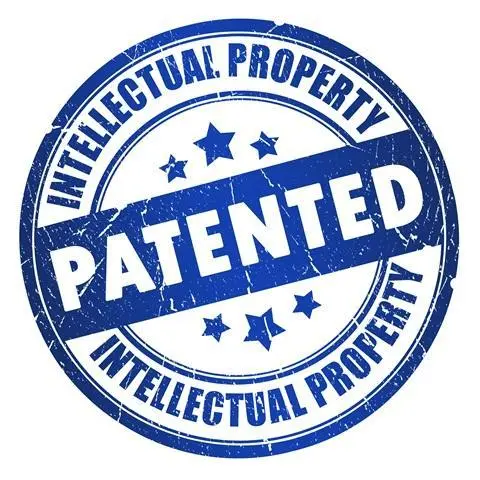
Unlocking Africa’s Potential: The Imperative of Intellectual Property Rights in AfCFTA Negotiations
Innovation and Africa’s Single Market
The African Continental Free Trade (AfCFTA) agreement is a historic opportunity for the continent to foster economic growth, enhance growth in intra-African trade, and improve the standards of living for millions of people. Projected to create a single market of about 1.3 billion people with a combined GDP of US$3.4 trillion, it represents a long-term development strategy for transforming the continent into a global economic powerhouse. Innovation is crucial to the implementation of the program and in the digital age, the challenge lies in the enhancement and protection of intellectual property rights to enhance creativity and entrepreneurial spirit among Africans.
The promotion and the protection of intellectual property rights (IPR) are central to the successful achievement of AfCFTA objectives with a committee established in May 2021 to handle the negotiations among member states. As negotiations mature, it is critical that the Committee on Intellectual Property Rights pays attention to the need to safeguard and promote the rights within the AfCFTA framework. Prioritizing IPRs can enable the creation of a business environment that enhances innovation, attracts foreign investment, and continuously unlocks the creative potential within the content. The need for Intellectual Property Rights Protection is therefore an urgent requirement for the success of trade and investment across Africa.
Protecting Innovations
Intellectual Property Rights are critical elements in the protection of innovation especially in the digital realm and are therefore a critical lifeblood for economic progress. Thus, encouraging and protecting the IPR through robust and effective systems is critical if the continent is to drive economic growth in the digital age. It is upon the committee on IPRs to ensure that adequate safeguards are negotiated as a mechanism for protecting investors, patents, trademarks, copyrights, and other forms of intellectual property that underline trade and value creation across the continent.
Notably, establishing a clear and effective enforcement mechanism for Africa is necessary for encouraging local investors to invest in research and development with the assurance of continued protection. In turn, this would be critical in attracting foreign investment and technology transfer as more international players gain confidence in the continent’s commitment to protecting intellectual property.
Balanced Access to Innovation Incentives and Knowledge
There is a delicate balance between the protection of intellectual property rights and enhancing increased knowledge transfer for human resource capacity development in innovation and creativity for the continent. Thus, in negotiating acceptable terms to protect IPRs, the Committee must also be keen to address the delicate balance between the protection of the rights and the promotion of access to knowledge, especially for the budding tech-savvy African young population. For instance, access to knowledge, affordable educational resources, medicine, and other critical goods and services for the success of the AfCFTA must not be hindered by overly strict or protective intellectual property regulations. It should therefore not be lost on the IPRs Committee to enhance a balance between the two elements in spurring innovation across the continent.
Striking this balance requires that the Committee considers implementing safeguards such as compulsory licensing provisions to enable local manufacturers to produce generic versions of patented products and services such as medicines and technology equipment to meet urgent needs and enhance affordability. Moreover, the Committee needs to create room for increased collaboration between academic, research institutions, and industry players to facilitate increased knowledge-sharing while promoting innovations. Notably, the relationships between these players ought to be glued to the principles of fair competition.
“Innovation is crucial to the implementation of the program and in the digital age, the challenge lies in the enhancement and protection of intellectual property rights to enhance creativity and entrepreneurial spirit among Africans.”
Domestic Capacity Strengthening
While negotiating, there is a need for the Committee on Intellectual Property Rights to prioritize the building of strong domestic capacities in intellectual property management and enforcement. Africa has increasingly suffered from the adoption and creation of inappropriate IP systems, infrastructural issues, trademark squatting, awareness funding, and education challenges. Moreover, Africa has a diverse cultural heritage and traditional knowledge that must be protected against misappropriation and exploitation for the benefit of AfCFTA actualization. Thus, establishing effective frameworks for traditional knowledge protection can allow Africa to safeguard its already rich cultural legacy and effectively foster economic opportunities for the local population.
Further, the Committee has to focus on establishing mechanisms for continuous investment in intellectual property education and training programs to equip African innovators, policymakers, and entrepreneurs with the requisite knowledge and skills to navigate the complexities of the IPRs. This will empower them in making informed decisions, effectively manage their intellectual assets, and leverage existing intellectual property rights to enhance the continent’s economic development.
Collaborative Partnerships and Harmonization
The AfCFTA is an ideal framework that proposes increased collaboration and harmonization of trade-related attributes which can equally be adapted for intellectual property laws across member states. Thus, the Committee on IPRs must focus on encouraging member states to align their frameworks with internationally acceptable standards, such as those recommended by the World Intellectual Property Organization (WIPO). This is an incentive for facilitating trade and trade inflows within the continent and beyond which could create a level playing field for African businesses enhancing trade success under the AfCFTA. Thus, the committee has to focus on promoting knowledge-sharing and technical assistance initiatives for AfCFTA member states. The sharing of best practices, resources, and experiences in the public and private sectors will allow for the building of a collective and stronger intellectual property system, and establish a creative environment for innovation, creativity, and economic growth.
As Africa embarks on this transformative journey through the AfCFTA, it is paramount that the Committee on Intellectual Property Rights pays meticulous attention to the protection and promotion of intellectual property rights. Striking a balance of protection and access, strengthening domestic capacities, fostering collaborative partnerships, and harmonizing IPR frameworks, the continent can access more innovation and creativity power to enhance sustainable economic growth, create jobs and improve the living standards of its people. By prioritizing intellectual property rights, Africa can create an environment that attracts investment, fosters innovation, and unlocks the continent’s immense creative potential under the AfCFTA.
These are the writer’s own opinions and do not necessarily reflect the viewpoints of Liberty Sparks. Do you want to publish in this space? Contact our editors at [email protected] for further clarification.



